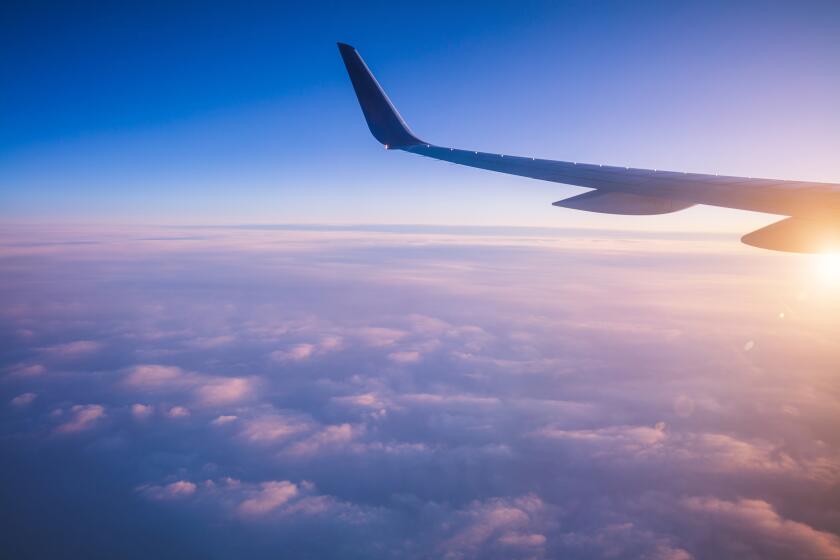Some voice support for terrorism trials in New York
During the spring of 2006, Alexandria, Va., played host to the only Sept. 11-related trial so far -- that of Zacarias Moussaoui.
Much of the area was filled with police, and some residents complained of difficulties getting in and out of the neighborhood.
But life went on. Even in front of the brick-and-glass courthouse, a 10-story Westin hotel was going up.
“I remember the construction workers sitting up on those steel girders, watching us,” recalled Edward B. MacMahon Jr., one of Moussaoui’s attorneys. “They were watching everything.”
Atty. Gen. Eric H. Holder Jr. had envisioned a trial for Khalid Shaikh Mohammed and four other alleged Sept. 11 co-conspirators in an open public arena. He first said it was going to the federal courthouse in Lower Manhattan -- one of the most congested spots in the country.
Though Manhattan officials and New York lawmakers have forced Holder to reconsider, lawyers, federal marshals and security experts on other high-profile terrorism cases think that a trial can safely go forward.
Mohammed “has said repeatedly and publicly, ‘I did it. Kill me,’ ” said Ron Kuby, a New York City criminal defense lawyer who has represented terrorism defendants for 30 years. “And the government has said repeatedly and publicly, ‘He did it. We want to kill him.’ ”
“It sounds like a plan,” the lawyer concluded. “Not a lot can go wrong.”
Others differ. Larry Homenick and Tina Rowe, the two top federal marshals who coordinated security in Denver for the 1997 trial of Oklahoma City bomber Timothy McVeigh, said that although that case of domestic terrorism went off without a major hitch, the world has changed dramatically.
Back then, the worry was that anti-government militias might stir up trouble. Today, the fear is suicide bombers and airplane attacks.
Homenick and Rowe said it seemed prudent to keep the Sept. 11 suspects’ trial out of a crowded hub like Manhattan.
“That case in New York would be like the McVeigh trial on steroids,” Homenick said.
Top Justice Department officials continue to search for a new site for the Mohammed trial, and Holder and President Obama remain opposed to military tribunals at Guantanamo Bay, Cuba, for the defendants. Their legal theory has been that a trial should be conducted where the Sept. 11 attacks occurred -- New York, Virginia or western Pennsylvania, where the fourth plane crashed.
But opposition has grown fierce among Republicans and some Democrats in Washington to any trial anywhere in the country.
In the Senate, legislation has been introduced, with 28 co-sponsors so far, to deny all federal funding for trial security. That prompted Holder and Defense Secretary Robert M. Gates to advise Congress last week that “it would be unwise and would set a dangerous precedent for Congress to restrict” terrorism prosecutions.
The Justice Department notes that about 135 terrorism cases have been brought in civilian courts in recent years, and all have gone safely. For the Oklahoma City bombing trials, the police barricaded several blocks, sealed manhole covers and pulled up parking meters around the courthouse. About 500 deputy U.S. marshals were dispatched to Denver. The FBI brought in bomb-sniffing dogs and explosives experts.
Bernard V. Kleinman, a lawyer who represented Ramzi Ahmed Yousef in the 1993 World Trade Center attack, said Mohammed and the others might plead guilty, resulting in short sentencing hearings. He disagreed that putting the Mohammed trial in New York would increase the likelihood of another attack there. “New York has been a target for years,” he said.
Kleinman added about Sept. 11: “I was down there when it happened, two blocks away. I saw it and felt it and watched people leaping and burning to death. It’s important they hold the trial right there.”
Another defense attorney, James J. Brosnahan, represented John Walker Lindh, who, like Moussaoui, was taken to the Alexandria courthouse after his capture for fighting with the Taliban.
Brosnahan said neither he nor Lindh, who later pleaded guilty to non-terrorism-related offenses, felt they were in any danger.
“Courts today,” Brosnahan said, “are built to deal with all kinds of problems.”
richard.serrano@
latimes.com
More to Read
Sign up for Essential California
The most important California stories and recommendations in your inbox every morning.
You may occasionally receive promotional content from the Los Angeles Times.











